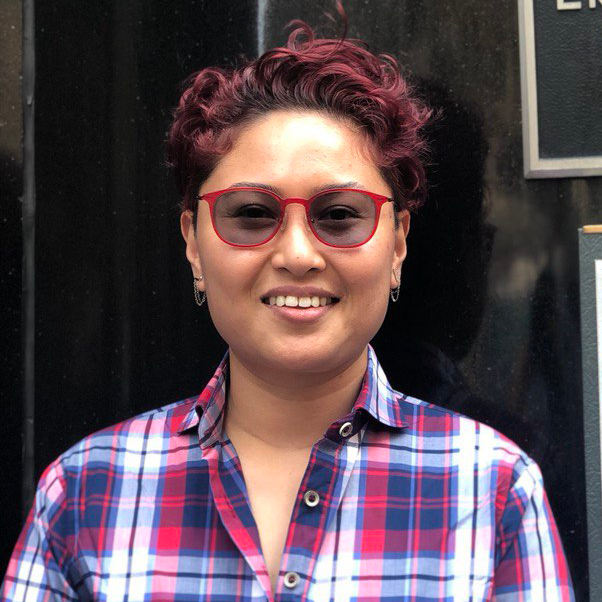The under/over series puts a spotlight on gender equity in data for social impact, and aims to raise awareness of successful ways for women and gender-diverse individuals to be represented in data and to themselves harness the power of data to drive social impact. Andi Suraidah is the Founding Director and Partner of Legal Dignity, a queer-affirming initiative dedicated to advocating for meaningful access to justice for LGBTIQ+ persons in Malaysia. She highlights the impact of data-driven interventions in addressing gender-based violence and supporting sexual and gender minorities in Malaysia.
Tell us about the role of data collection, analysis, and action in your work. What significant findings have emerged from it and what impact or outcomes have you observed?
At Legal Dignity, we use data collection and analysis to address gender-based violence and support sexual and gender minorities in Malaysia. By gathering and studying relevant data, we identify areas of concern, monitor progress, and create evidence-based interventions.
These insights guide the development of policies and laws promoting gender equality, protecting LGBTIQ+ individuals, improving access to justice, and tackling systemic discrimination.
Data also helps prioritize awareness-raising, public dialogue, and advocacy efforts for positive change. With data-driven knowledge, we can target specific intervention areas and implement focused programming and projects to improve outcomes for the LGBTIQ+ community.
Our data revealed significant patterns of gender-based violence, discrimination, and harassment against LGBTIQ+ people in Malaysia. A 2022 survey showed disparities in their access to justice, influenced by other social identities like race, religion, and socioeconomic level. These systemic barriers must be addressed to improve justice system accessibility and equity.
By incorporating the data lifecycle methodology that the Gender 101 course taught, we have been able to ensure that gender analysis is integrated into every stage of our research processes — from the planning and design phase to data collection, analysis, and interpretation.
Andi Suraidah Founding Director and partner Legal Dignity
When did you first recognize a gender challenge that could be addressed through data? Was there a personal motivation to delve into this area of research?
Data is the lifeblood of the work I do at Legal Dignity, and through my experience, I’ve become aware of a significant and worrying issue: the acute lack of gender-disaggregated data in government datasets.
This not only means we can’t precisely identify the number of LGBTIQ+ individuals harmed by the inaccessibility to justice, but it also makes it difficult for our organization to analyze the effectiveness of existing programs.
To bridge the gap in gender-disaggregated datasets, we are taking on the responsibility of developing and utilizing our own data. We launched a nationwide survey to determine the scope of injustice in relation to access to justice among Malaysian LGBTIQ+ people.
Our data collection provides crucial insights into the LGBTIQ+ community’s experiences and needs and allows us to develop and tailor targeted programs, addressing the specific challenges that our data reveals in accessing justice and navigating the legal system.
What are some of the challenges of doing this work? Which were anticipated, and which unexpected?
LGBTIQ+ individuals often face significant stigma and discrimination in various countries, including Malaysia, where same-sex sexual behavior is criminalized and freedom of expression and association for LGBTIQ+ individuals is restricted.
For these reasons and more, people hesitate to openly share their experiences, and the hidden nature of this population makes gathering comprehensive and inclusive data challenging. Additionally, the lack of sufficient government support or funding for data-gathering activities targeting this population further compounds the difficulties.
As a result, we approach data collection with the utmost care, recognizing that asking individuals about sensitive topics like sexual orientation and gender identity can put them at real risk. Researchers must navigate intricate ethical considerations, emphasizing confidentiality, privacy, and participant safety, which ultimately impacts the accuracy and reliability of the data collected.
To overcome these challenges, building trust and cooperation with the LGBTIQ+ community is crucial for successful data collection, and establishing partnerships with community leaders can help facilitate data collection efforts so that, ultimately, we can get larger, more representative datasets.
Building trust and cooperation with the LGBTIQ+ community is crucial for successful data collection, and establishing partnerships with community leaders can help facilitate data collection efforts so that, ultimately, we can get larger, more representative datasets.
Andi Suraidah Founding Director and partner Legal Dignity
How did data.org’s Gender Data 101 course influence your perspective on your work, and what were the most significant insights you gained from the course?
The Gender Data 101 course begins with the basics — how does gender intersect with race, class, and sexuality? The training helped me fully comprehend the scale of gender complexity, which is essential for data analysis and interpretation.
Moreover, the course provides step-by-step processes and best practices for conducting gender-responsive data collection, ensuring data is appropriately disaggregated by gender and other relevant variables. By following this process, I have been able to identify and address gender biases in datasets effectively. The course also includes real-world case studies that have greatly aided my understanding of theory-to-practice implementation.
Armed with this comprehensive framework, I am better equipped to recognize and rectify gender biases and disparities within datasets. As a result, my work fosters a more accurate and nuanced understanding of the issues at hand.
How do you plan to apply the knowledge and insights gained from the course to your specific work involving gender and data?
By incorporating the data lifecycle methodology that the Gender Data 101 course taught, we have been able to ensure that gender analysis is integrated into every stage of our research processes — from the planning and design phase to data collection, analysis, and interpretation. This methodology also helps us identify potential biases, gaps, and limitations in our research, allowing us to generate more reliable findings.
The gender analysis frameworks in the course also offer us a structured way to examine the differential impacts of our research on different gender groups and, in turn, will inform our advocacy as we work to better understand how gender intersects with other social identities and influences access to justice.
To ensure that these valuable insights and approaches are consistently applied across our organization, we are in the process of translating and summarizing the course content into a policy for research work. This policy will serve as a reference and guide for all researchers at Legal Dignity, ensuring that gender analysis is a fundamental component of their work.
What are your hopes for the future? What will more, better, and better-applied data change?
Improved Decision-Making: With access to more comprehensive and accurate data, decision-makers across various fields can make more informed and evidence-based decisions leading to more effective strategies and policies to support marginalized groups.
Evidence-Based Social Interventions: Better data and its effective application can contribute to addressing pressing societal challenges, such as poverty, inequality, and climate change through evidence-based policies, targeted interventions, and sustainable development initiatives.
Enhanced Efficiency and Productivity: Better data and its application can streamline processes, automate repetitive tasks, and optimize resource allocation leading to increased efficiency, reduced costs, and improved productivity in organizations working to make social change.
“5 Minutes with” series
These articles share the stories of people around the world leveraging data and AI to drive impact.

